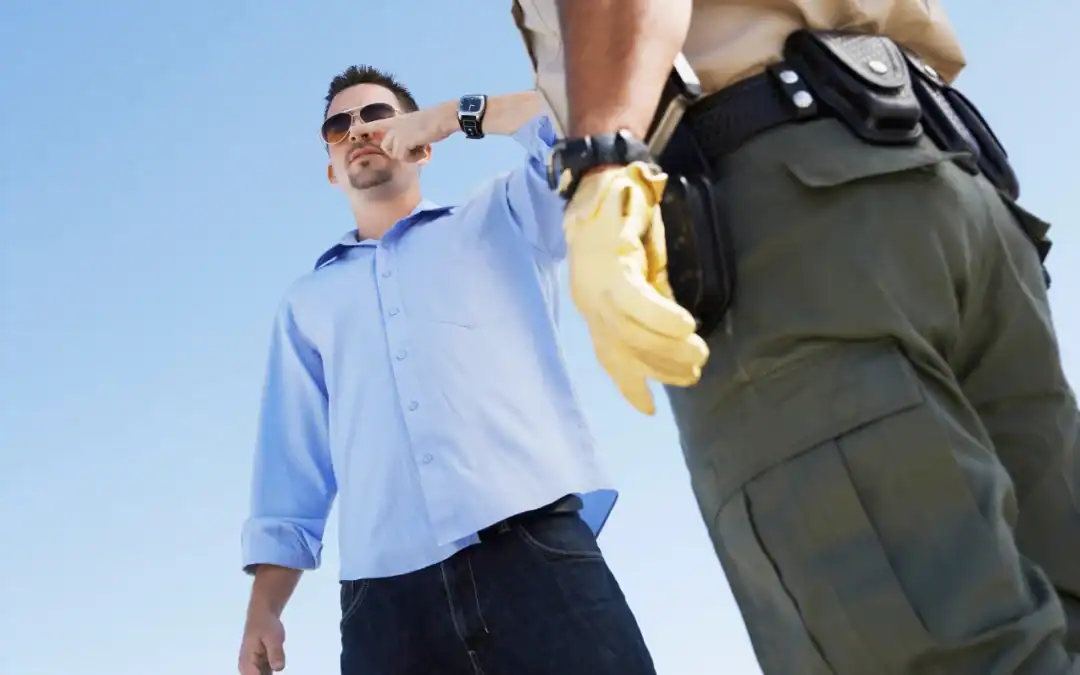If you are pulled over for a suspected DUI in Arizona, the officer may ask you to step out of your car and perform a series of “tests”—walking heel-to-toe, balancing on one leg, or following a pen with your eyes. These are called field sobriety tests (FSTs).
You should never take them.
These tests are voluntary, they are not reliable, and they almost always work against you. Whether you are completely sober or not, they can provide the officer with the “evidence” they need to justify an arrest.
Field Sobriety Tests Are Not Accurate
The National Highway Traffic Safety Administration (NHTSA) admits these tests are far from perfect:
- Horizontal Gaze Nystagmus (eye test): 77% accurate at best
- Walk-and-Turn: 68% accurate
- One-Leg Stand: 65% accurate
Even in ideal conditions, a significant percentage of sober drivers are misclassified as impaired. Add in roadside distractions, poor lighting, uneven pavement, and nerves, and your odds drop even further.
They’re Even Worse If You’re Older or Out of Shape
Field sobriety tests are designed for people in peak physical condition. If you are:
- Over 40
- Overweight
- Have balance issues, back pain, or joint problems
- Wearing heels, boots, or restrictive clothing
…your chances of “failing” go up dramatically. The officer doesn’t care if your balance problem has nothing to do with alcohol. If you stumble, sway, or simply look nervous, they will write it down as “signs of impairment.”
These Tests Only Serve the Police—Not You
Officers are not using FSTs to clear innocent drivers. They are looking for probable cause to make an arrest. If you perform flawlessly, the officer can still arrest you if they “smell alcohol” or “see watery eyes.” If you make even minor mistakes, it becomes additional evidence against you.
There is no upside for you. Passing these tests will not guarantee you avoid arrest. Failing them gives the State more ammunition in court.
Do You Have to Take a Field Sobriety Test?
No. In Arizona, field sobriety tests are completely voluntary. You are under no legal obligation to perform them.
This is very different from Arizona’s implied consent law, which applies only after you are arrested. Once formally arrested, you must submit to a breath, blood, or urine test or face a one-year license suspension. But before arrest, you can and should politely refuse any field sobriety tests.
What to Say if Asked
If the officer asks you to perform field sobriety tests, calmly and respectfully say:
“I do not wish to do any field sobriety tests.”
Then stop talking. Do not argue or explain yourself. Do not volunteer information. Anything you say can and will be used against you later.
What Happens if You Refuse?
You might be arrested anyway—but you are likely to be arrested regardless of how you perform. By refusing, you are protecting yourself from giving the officer more subjective “evidence” that can be twisted against you in court.
Can an Attorney Challenge Field Sobriety Tests?
Yes. If you agreed to take the tests and “failed,” all is not lost. An experienced Arizona DUI defense attorney can challenge:
- The officer’s training and qualifications
- Whether the instructions were clear
- Roadside conditions (lighting, noise, pavement)
- Your medical history or physical limitations
- The scientific reliability of FSTs
But the best defense is not to take the tests at all.
Protect Your Rights with Damianakos Law
Field sobriety tests are designed to help the police, not you. If you are older, have any physical limitations, or simply want to protect yourself, politely refuse them.
If you have been arrested for DUI in Arizona after refusing—or “failing”—field sobriety tests, contact a very experienced DUI Attorney at Damianakos Law at 520-222-8270. We know how to challenge unfair evidence and protect your driving privileges and your future.





